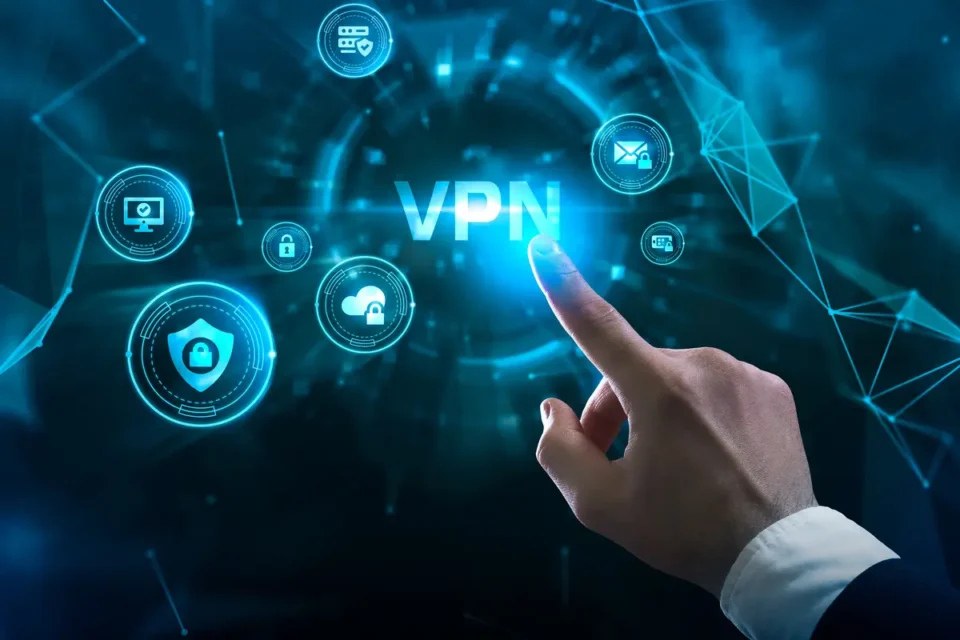Virtual private networks (VPNs) may sound frightening, but using these tools is simpler than you may imagine. There are numerous advantages to using a VPN, whether you’re a small business or an individual. Utilizing a VPN makes it safer to engage in activities like travelling and using public WiFi, sending sensitive information, or even just watching Netflix content.
You’ll discover what a VPN is, what it does, and some of the most popular VPN usage in 2023 in this article. We’ll go over both individual and professional applications so you can learn how to use a VPN effectively at home or at business.
Why Do You Need a VPN?
A VPN, in its simplest form, offers an encrypted server and conceals your IP address from businesses, authorities, and would-be hackers. When using shared or public Wi-Fi, a VPN secures your identity and keeps your data hidden from snooping online eyes.
Instead of routing your internet connection to a hosted server, a VPN gets around your own ISP. Users can “relocate” themselves and access the internet from almost anyplace thanks to the widespread distribution of servers. Encryption provides an additional degree of security, especially for companies that routinely use remote access. Additionally, it can be a useful tool for streaming, gaming, and travel.
What Do VPNs Do?
- Security on Public Wi-Fi
Public Wi-Fi is useful, but security suffers as a result. Someone might be watching your online behavior while you’re checking emails at a nearby coffee shop or mindlessly scrolling through social media at the airport.
By disguising your browser history, financial information, account passwords, and more from malicious online strangers when you are using other networks, a VPN secures your data.
Here are some key reasons why every online user needs a VPN to secure their identity:
Protect your personal information from hackers
You are less likely to be attacked by strangers at home than you are in a public place when using Wi-Fi. Your data is nevertheless still in danger.
All of your internet data is accessible to your ISP, or internet service provider—Comcast, Spectrum, Verizon, or any other business you pay each month for Wi-Fi. When, where, and how you browse are all visible to your ISP.
Even if you are utilising the “private” browsing mode, this data can still be gathered and sold to marketers and could be harmful if it falls into the wrong hands in the event of a data breach. Your IP address can be hidden from your own ISP with the aid of a VPN.
Compatibility with Many Smart Devices
Although many of us may initially test a VPN on a laptop that we’ve borrowed from work, many VPN services also offer protection for other smart devices, including phones, tablets, and desktop PCs. Many VPN companies offer packages that keep you safe across a variety of devices, even if each provider may offer somewhat different protection plans and have varying capacity to protect certain devices.
Access Blocked Websites And Content
A VPN can help you access websites and content that have been blocked. It can also help you avoid government surveillance and censorship. Many countries have strict internet censorship laws that restrict access to certain websites or online content. This can include social media platforms, news websites, streaming services, and more.
Hulu is the most viewed streaming platform these days, but it is geo-restricted and only available in the US on outstreambinge
With a VPN, you can get around these restrictions and get to the content you want, no matter where you are. By connecting to a VPN server in a different country, you can make it appear as if you are accessing the internet from that location. However, choosing the best VPN for Hulu that you can use to watch Hulu in Thailand, but there is a huge market of VPNs that allow you to bypass regional restrictions and access blocked websites and content.
Hide Location Data
A VPN can also conceal your location data. How does this assist you in safeguarding your browsing history? First, when you change your location, you might make it hard for ad networks to send you ads that are relevant to you. This will stop targeted ads from showing up in your social media feeds and search engine results. These ads are often so accurate that they feel like a privacy invasion.
Second, if you hide your location, cybercriminals who are looking for PII won’t be able to find it. Criminals can’t find out your IP address if you use a VPN. (Your device is connected to a certain local network through its IP address.) When IP addresses are visible, criminals can track them to find out home addresses, full names, and phone numbers. All of these are important pieces of PII that, in the wrong hands, can put your identity at risk.
Remote Workplace Security
The data encryption capabilities of a VPN are one advantage. You can protect sensitive data via encryption, which is the process of putting data into a coded format that obscures its meaning.
If you’re an individual considering purchasing a VPN for your business, one advantage is that employees can access your office network and view confidential documents on their personal devices while they’re not at work. A VPN is a useful investment because remote work appears likely to continue after the pandemic is over. This will help to keep sensitive information protected off-site.
Final Verdict:
To conclude it here, I would say in the coming era of advanced technology, scams and hacking will touch the skies, so secure VPNs are a must-have for every online user out there for keeping their identity secure.

